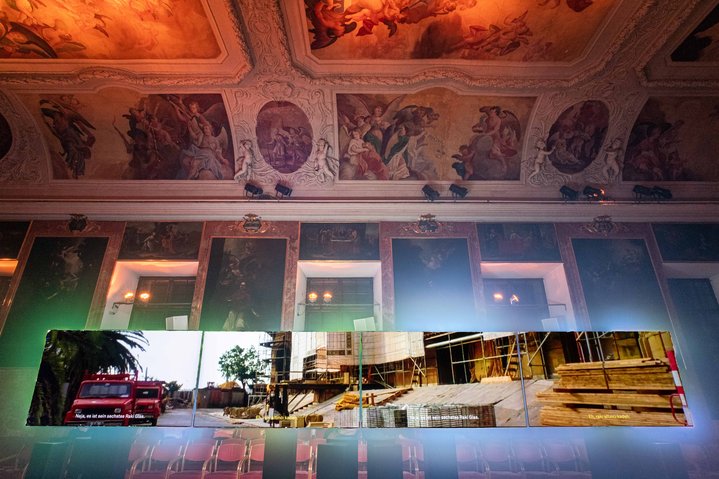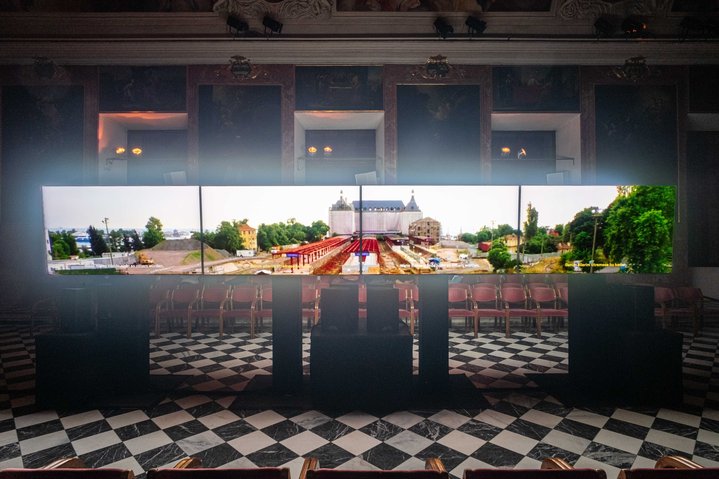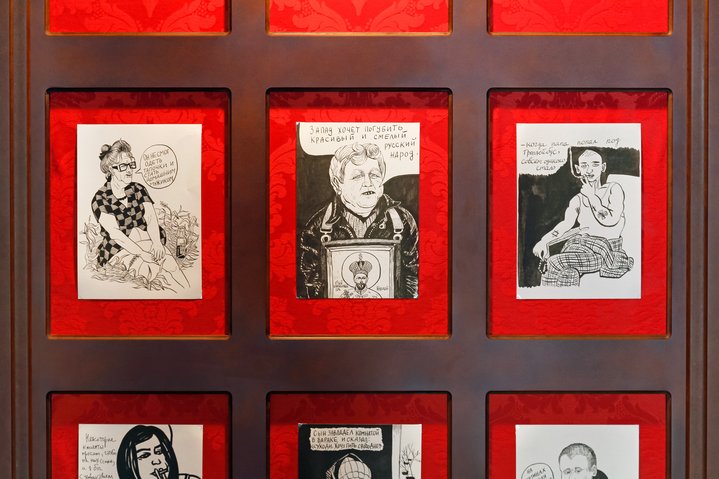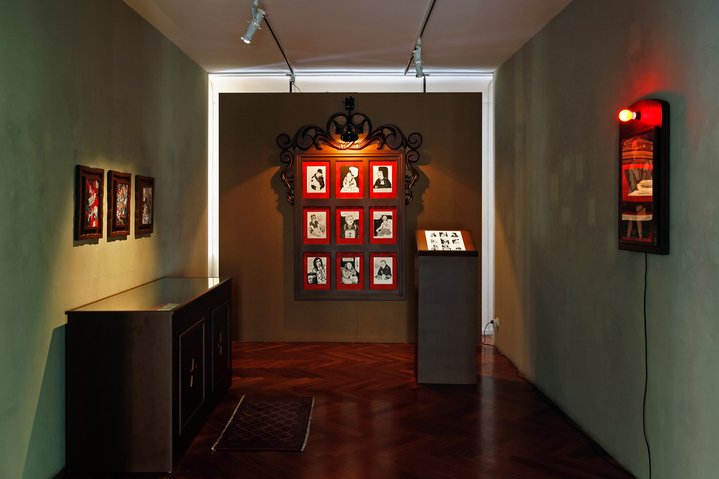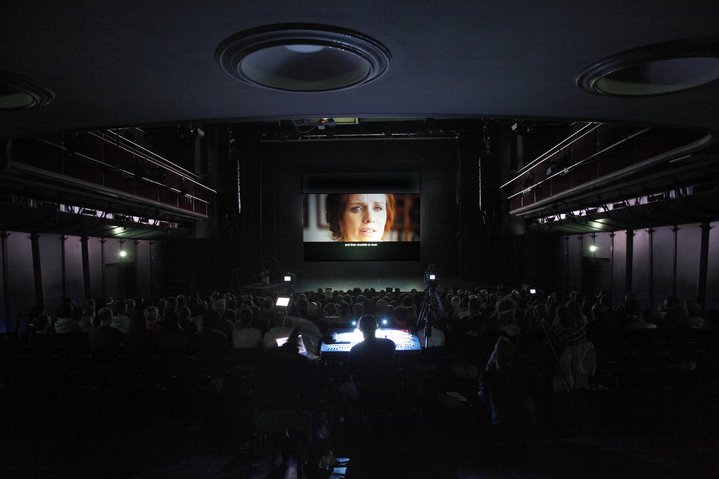Ekaterina Degot. Photo by Marija Kanizaj
A déjà vu of the 1930s?
Ekaterina Degot has become well known for her fight against Nationalism. This profile links this to her long-held interest in text and image.
Among the endless curatorial deadwood there are curators who stand out, because they make a stand: they stand for certain principles. Ekaterina Degot, currently Director and Chief Curator of the festival steirischer herbst in Graz, Austria is one of these. Of course, one can be a good curator by just reflecting the times, by acting as a catalyst for artists and what they have to say. Ekaterina Degot is this kind of curator, too. It is a rare combination. This short profile focuses on two of her themes: nationalism and fiction, which she sometimes weaves together.
The 2019 edition of the steirischer herbst festival focused on the tension between pleasure and catastrophe. The phrase that provided the title for the 2019 event, “Grand Hotel Abyss”, came from the pen of the philosopher Georg Lukács (1885-1971) and harkens back to the hedonists fiddling away, while the Nazis destroyed their world.
In her opening speech, Degot explained the festival’s goal was to deal with the “the narrative of civilized Europe”, drawing a line from Graz’s Renaissance architecture to recent political scandals. Time and again, European states have promised to create order and promote joie de vivre within the area they protect against Barbarian invasions. Yet, time and again, Degot stressed, collapse seemed imminent, corrosion from within looming just around the corner. The present appears to recall to an uncanny degree the diagnosis of the Hungarian Marxist philosopher Giorgy Lukács made of the situation shortly before the outbreak of World War II.
Degot had already stated in the festival’s previous edition there was “an alarming déjà vu of the 1930s”. When opening the 2018 festival, she let rip with a line of rhetorical questions. They began innocently enough: “Excuse me, do you know where the tram stop is?” But, she soon moved onto more dangerous ground: “Excuse me, are you for immigration or against it?” There may not have been the 700,000 who came to the Nuremberg rallies, but in front of a crowd of some 1,000 she asked: “Excuse me, do you have Nazi memorabilia in your home?” She then promoted the Japanese artist Yoshinori Niwa’s contribution to the festival, an installation entitled ‘Withdrawing Adolf Hitler from Private Space’ (2018), which consists of a donation bin for Nazi memorabilia.
Degot has been put in charge of the festival for five years. Her first was called ‘VOLKSFRONTEN’. On the one hand, it alludes to the anti-fascist movements of the 1930s, but on the othe.r it also refers to white supremacists in the US. She believes that art “does not and should not provide answers”. Her curating opens debates and dialogues rather than closes them down. “The Left,” she says, “has always been very committed to the notion of homeland, but its homeland, which has something patriotic and even nostalgic about it, is internationalism; at least that of the Left I know and respect […]. This is not in contradiction to feelings for one’s own context, where one feels at home and where one works to make it better.”
She is adept at involving and incorporating into exhibitions and festivals the ideas of writers such as the late Turkish poet Nâzım Hikmet (1902–1963). She built a whole performance around him, with Michiel Vandevelde’s choreography, Roee Rosen’s musical performance, and Igor Krutogolov’s toy orchestra.
Degot has a strong interest in the relationship between text and image. This is partly the result of her involvement with Russian art and thinking. She started her career in the 1990s as an art historian and an art critic, and later, plunged into journalism. While she was Artistic Director of the Akademie der Künste der Welt in Cologne, she arranged a festival around the theme of “Stealing from the West”. That mastermind of double take, Yuri Albert (b. 1959), was one of the stars of the show. In the 2018 edition of the festival, she also showed a younger Russian artist, Victoria Lomasko (b. 1978). Her text-and-image works strangely highlight the complicated Soviet inheritance of contemporary artists. Degot observes that “artists who work with fiction are right at the centre of the storm currently enveloping politics, and they are exposing its media tricks”. Ekaterina Degot is at home at the heart of the storm.






